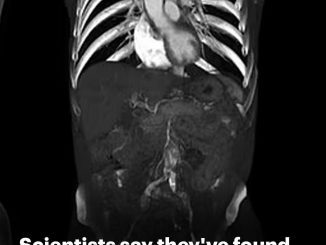
Water is often overlooked in our daily health routines, yet it’s one of the most essential components of life. Your body is made up of around 60% water, and nearly every function it performs depends on staying properly hydrated. From regulating temperature to flushing out toxins, water is involved in nearly everything your body does. So what happens when you don’t drink enough of it?
Dehydration doesn’t always show up as intense thirst. Sometimes it creeps in silently, showing up through fatigue, headaches, or even digestive problems. In this article, we’ll explore the short-term and long-term effects of not drinking enough water—and why staying hydrated is more important than you think.
1. You Feel Tired and Sluggish
One of the first signs of dehydration is fatigue. When your body lacks enough water, your blood volume decreases, making it harder for your heart to deliver oxygen and nutrients to your muscles and organs. As a result, you may feel unusually tired or sleepy, even if you’ve had enough rest.
This sluggish feeling may affect your concentration, alertness, and overall productivity during the day. If you often feel drained for no clear reason, your water intake could be the problem.
2. Your Skin Becomes Dry and Dull
Water plays a vital role in maintaining skin elasticity and moisture. Without enough of it, your skin may appear dry, flaky, or dull. You may even notice more fine lines or increased sensitivity.
While moisturizers help externally, true skin hydration starts from within. Drinking enough water keeps your skin cells plump and improves overall complexion. If you’re investing in skincare products but ignoring your water intake, you’re missing a critical piece of the puzzle.
3. You Get Headaches More Often
A lack of water can lead to headaches or even migraines. When you’re dehydrated, your brain tissue can temporarily shrink, causing pain and discomfort. Dehydration also affects the balance of electrolytes in your body, which may trigger additional head pain.
If you notice that your headaches worsen when you skip meals or spend time in the sun, dehydration might be the root cause.
4. You Have Trouble Going to the Bathroom
Water is essential for proper digestion and elimination. When you’re dehydrated, your colon absorbs more water from the waste in your digestive tract, making your stool harder and more difficult to pass. This can lead to constipation, bloating, and discomfort.
In severe cases, a lack of hydration can slow down your entire digestive system. Drinking more water, along with increasing fiber intake, can help keep things moving smoothly.
5. You May Gain Weight
Surprisingly, not drinking enough water can actually lead to weight gain. Your body sometimes confuses thirst for hunger, causing you to eat more when you actually need hydration. This leads to unnecessary snacking and extra calories.
In addition, dehydration slows down your metabolism, which can make it harder to burn fat. Drinking water before meals not only supports digestion but also helps control appetite.
Video : What happens if you dont drink enough water? Signs of Dehydration + 4 ways to keep hydrated
6. Your Urine Becomes Dark and Concentrated
One of the most obvious signs of dehydration is dark-colored urine. Ideally, your urine should be a light, pale yellow. If it turns dark yellow or amber, it’s a signal that your body needs more water.
You may also urinate less frequently when dehydrated, which is a red flag that your kidneys are trying to conserve water.
7. You May Experience Dizziness or Lightheadedness
When you don’t drink enough water, your blood pressure can drop, which may cause dizziness, especially when standing up too quickly. This is because dehydration reduces blood volume, limiting the amount of oxygen and nutrients that reach your brain.
If you’re feeling faint or dizzy, especially in hot weather or after exercise, it could be due to fluid loss.
8. Your Breath May Smell Bad
Saliva plays an important role in washing away bacteria in your mouth. When you’re dehydrated, your body produces less saliva, leading to dry mouth and bad breath.
In extreme cases, lack of hydration may contribute to gum disease and oral infections. If brushing doesn’t help your bad breath, you might want to drink a glass of water.
9. Your Muscles Cramp More Easily
Water helps your muscles contract and relax properly. Without enough fluid, the balance of electrolytes like sodium and potassium is disrupted, increasing the risk of muscle cramps.
This is especially common after exercise, during hot weather, or if you’ve been sweating a lot. Rehydrating with water or drinks containing electrolytes can help prevent painful cramping.
10. Your Mood and Brain Function Decline
Even mild dehydration can affect your mood, memory, and cognitive performance. Studies have shown that low fluid intake may cause confusion, irritability, and decreased alertness.
Your brain is about 75% water, so even small drops in hydration levels can impact how you think and feel. If you’re feeling unusually anxious or mentally foggy, dehydration could be a factor.
Long-Term Consequences of Chronic Dehydration
While occasional dehydration can usually be corrected quickly, long-term water deficiency can cause more serious health problems:
- Kidney stones: Chronic dehydration can lead to mineral buildup in the kidneys.
- Urinary tract infections (UTIs): Less frequent urination allows bacteria to grow.
- High blood pressure: Thickened blood due to low fluid levels can strain your heart.
- Digestive disorders: Persistent constipation and acid reflux may worsen over time.
- Skin aging: Dehydrated skin loses elasticity faster, leading to premature aging.
These conditions can reduce your quality of life and increase your medical costs over time.
How Much Water Do You Really Need?
The common recommendation is to drink eight 8-ounce glasses of water per day—also known as the “8×8” rule. However, your actual needs depend on several factors:
- Activity level
- Body weight
- Climate
- Diet
- Health conditions
A good rule of thumb is to drink enough water so that your urine stays light in color and you don’t feel thirsty throughout the day.
Foods like fruits and vegetables also contribute to hydration, especially cucumbers, watermelon, oranges, and lettuce.
Video : What Happens If You Don’t Drink Water? – Mia Nacamulli
Tips to Stay Hydrated
- Keep a reusable water bottle with you.
- Set phone reminders to drink water.
- Flavor your water with lemon, mint, or berries if plain water feels boring.
- Drink a glass of water before every meal.
- Choose water over sugary drinks whenever possible.
Final Thoughts
Water is the foundation of health. Without it, your body struggles to function properly, and the effects show up in more ways than you might think. From headaches and fatigue to constipation and mood swings, dehydration touches nearly every part of your life.
The good news? Staying hydrated is one of the simplest, cheapest, and most effective ways to improve your health. So the next time you feel off, skip the extra coffee or snack—and reach for a glass of water instead. Your body will thank you.


